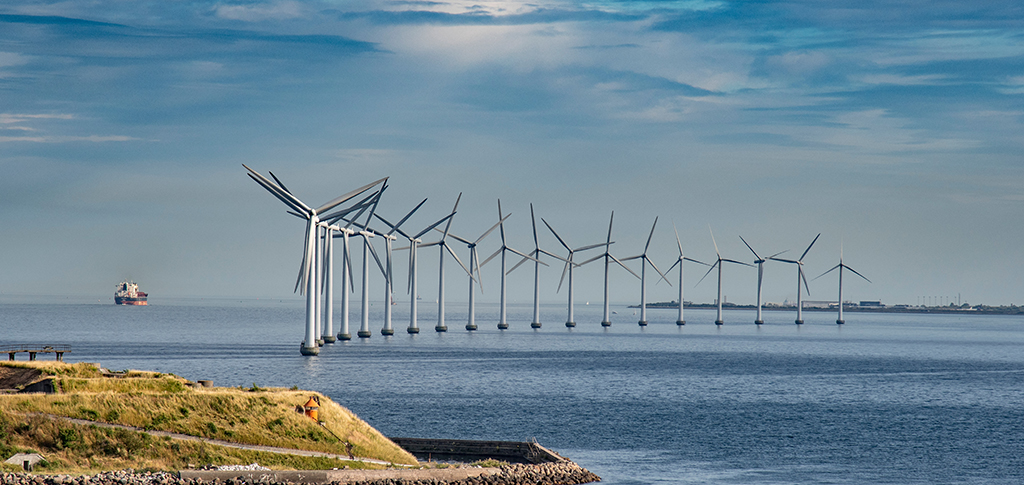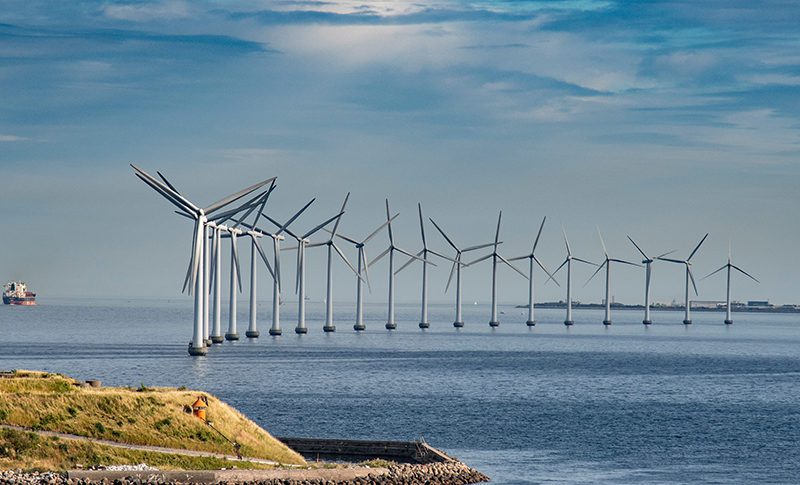(LONDON) — A new mandatory safety code for ships carrying industrial personnel – aimed at ensuring the safety of people transported to work on offshore facilities including wind farms – has been adopted by the International Maritime Organization’s Maritime Safety Committee (MSC 106), which met from Nov. 2 to Nov. 11.
The new Chapter XV of the International Convention for the Safety of Life at Sea (SOLAS) and the associated new International Code of Safety for Ships Carrying Industrial Personnel (IP Code) were developed by the IMO Subcommittee on Ship Design and Construction (SDC 8).

The aim is to provide minimum safety standards for ships that carry industrial personnel, as well as for the personnel themselves, and address specific risks of maritime operations within the offshore and energy sectors, such as personnel transfer operations. Such personnel may be engaged in the construction, maintenance, decommissioning, operation or servicing of offshore facilities, such as wind farms, as well as offshore oil and gas installations, aquaculture, ocean mining or similar activities.
The amendments and code are expected to enter into force on July 1, 2024.
SOLAS Chapter II-2 in relation to flashpoint
The committee adopted draft amendments to SOLAS Chapter II-2, intended to prevent the supply of oil fuel not complying with SOLAS flashpoint requirements (60 degrees Celsius), enhancing the safety of ships using oil fuel. The amendments are expected to enter into force on Jan. 1, 2026.
Safety of seafarers and shipping in the Black Sea and Sea of Azov
The committee was updated on the latest developments regarding the seafarers and shipping in the Black Sea and the Sea of Azov. The committee was also provided with an update on the latest developments regarding the successful operation of the Black Sea grain initiative.
Maritime autonomous surface ships (MASS)
The MSC made further progress on the development of a goal-based instrument regulating the operation of maritime autonomous surface ships (MASS). This follows the completion of a regulatory scoping exercise. The aim is to adopt a non-mandatory goal-based MASS Code to take effect in 2025, which will form the basis for a mandatory goal-based MASS Code, expected to enter into force on Jan. 1, 2028.
Unsafe mixed migration by sea – resolution adopted
The committee adopted an MSC resolution on recommended cooperation to ensure the safety of life at sea, the rescue of persons in distress at sea and the safe disembarkation of survivors, intended to emphasize the importance of effective and timely involvement of governments in cases of rescue of migrants at sea by merchant ships.
Revision of guidelines on places of refuge for ships in need of assistance
The MSC approved a revision of the guidelines on places of refuge for ships in need of assistance (Resolution A.949(23)). The draft revised assembly resolution will subsequently be submitted to the Marine Environment Protection Committee (MEPC) and the Legal Committee (LEG), for concurrent approval, with a view to adoption by the Assembly (A 33) in 2023.
Seafarers’ access to the COVID-19 vaccination and medical care
The MSC urged member states and international organizations to join efforts regarding seafarers’ vaccinations, following the example of Panama, which offers easy access to COVID-19 vaccines to all seafarers.
In the context of reports on the ongoing practice of denying seafarers medical assistance in ports, including dental and optical care, the committee invited member states to:
• Ensure that seafarers, as key workers, have the right to be treated with dignity and respect, taking into account that they spend most of their time traveling and at sea with a greater degree of testing and regular medical checks than any other person, and are only able to visit the shore for a short time, so a human approach to their medical needs and treatments must be respected.
• Acknowledge seafarers’ key role and facilitate their repatriation, access to medical care and protection in respect of shipowners’ protocols to avoid contagion especially during the gradual relaxation of COVID-19 restrictions.
For full details of all the decisions of the MSC, see the MSC 106 summary here.
– International Maritime Organization

